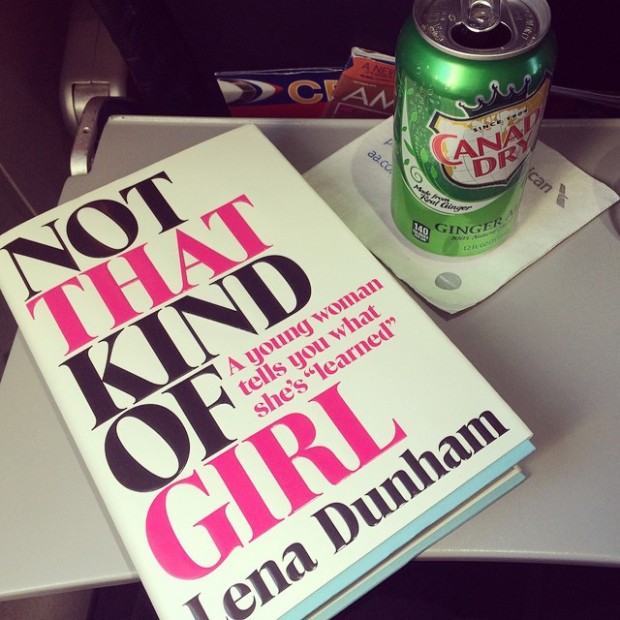Lena Dunham takes an incredible amount of criticism. I think some of it stems from the burden placed on her by critics and society to supposedly be “speaking on behalf of all young women.” Of course, the idea that she speaks for an entire generation of females is inaccurate, and the burden is a result of the lack of opportunities for women to write and lead television shows or major hollywood films. I say this here because I think it’s an important starting point when talking about her work. Roxane Gay wrote a piece for The Rumpus (included in Bad Feminist) that tackles this issue in depth. From the piece:
A generation is a group of individuals born and living contemporaneously. In the pilot, Dunham’s character, Hannah Horvath, is explaining to her parents why she needs them to keep supporting her financially. She says, “I think I might be the voice of my generation. Or at least a voice. Of a generation.” We have so many expectations; we’re so thirsty for authentic representations of girls that we only hear the first half of that statement. We hear thatGirls is supposed to speak for all of us.
There are so many terrible shows on television, representing women in sexist, stupid, silly ways. Movies are even worse. Movies take one or two anemic ideas about women, caricature them, and shove those caricatures down our throats. The moment we see a pop artifact offering even a sliver of something different, say, a woman who isn’t a size zero or who doesn’t treat a man as the center of the universe, we cling to it desperately because that representation is all we have. There are all kinds of television shows and movies about women, but how many of them make women recognizable?
…
The incredible problem Girls faces is that all we want is everything from each movie or television show or book that promises to offer a new voice, a relatable voice, an important voice. We want, and rightly so, to believe our lives deserve to be new, relatable, and important. We want to see more complex, nuanced depictions of what it really means to be whoever we are or were or hope to be.
I recommend reading the full piece, lots of good thinking on the lack of authentic female voices and experiences in popular culture, with particular regard to race. More opportunities for authentic and diverse female experiences to be represented and taken seriously in hollywood (and literature, for that matter) will benefit everyone.
Anyway, on to talking about the book!
If you like GIRLS, you’ll like this book. If you don’t like GIRLS, you still might like this book. I can’t write this review without comparing it to her show, however fairly or unfairly that is; I heard her character’s voice in my head while I read.
Like GIRLS, some of the stories about girlhood and growing up that Lena shares are going to make you cringe. (Much like thinking about some of the things we all did as part of growing up.) The way she tells the stories will often also make you laugh. A lot of times I recognized myself in her descriptions of her fears and concerns. Along with the cringe-worthy tales though, is an amount of reflection on how they shaped her and helped her grow, the kind of acknowledgement you don’t often get while watching the show. However If Lena Dunham, as a person, annoys you, I’m not sure if this book will change that. I like the show, and I like Lena. I liked this book.
Like GIRLS, there’s a lot of in the moment introspection. She admits that she’ll likely be embarrassed by this book at some point in her future. But I think that’s what makes it kind of great. There are some memoirs written by young people that give the sense that maybe they should have waited until they had a little more insight to share before they wrote a book about their life. But I didn’t get that feeling with Not That Kind of Girl. Instead, her account of looking back on her recent past had a freshness and energy that I don’t think they’d have if she had written them with more years between her and the experiences.
“I can never be who I was. I can simply watch her with sympathy, understanding, and some measure of awe. There she goes, backpack on, headed for the subway or the airport. She did her best with her eyeliner. She learned a new word she wants to try out on you. She is ambling along. She is looking for it.” -Not That Kind of Girl, page 78

Wonderful review, Emily! I loved that quote from Roxane Gay’s piece. I haven’t watched ‘Girls’. It sounds like a very interesting series. I will check whether it comes here on TV. Nice to see you back book-blogging. Been missing your reviews.
Thank you Vishy! It’s nice to be back book blogging! More to come. :)